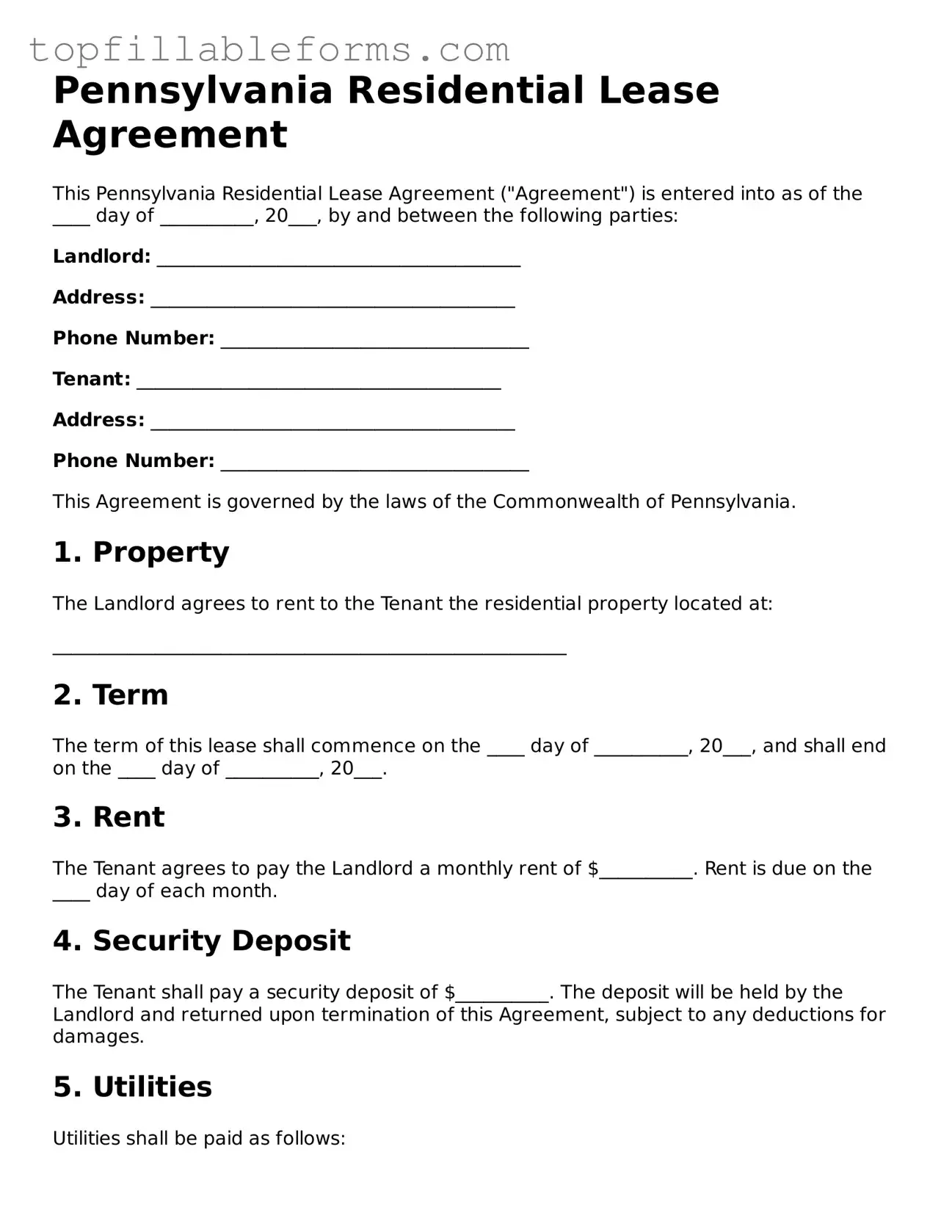Attorney-Verified Residential Lease Agreement Template for Pennsylvania
The Pennsylvania Residential Lease Agreement is a legal document that outlines the terms and conditions between a landlord and a tenant for renting a residential property. This agreement serves to protect the rights of both parties, ensuring clarity on issues such as rent payment, maintenance responsibilities, and lease duration. Understanding this form is essential for anyone involved in the rental process in Pennsylvania.
Open Residential Lease Agreement Editor Here

Attorney-Verified Residential Lease Agreement Template for Pennsylvania
Open Residential Lease Agreement Editor Here
Finish the form now and be done
Finish your Residential Lease Agreement online by editing, saving, and downloading fast.
Open Residential Lease Agreement Editor Here
or
▼ PDF File
